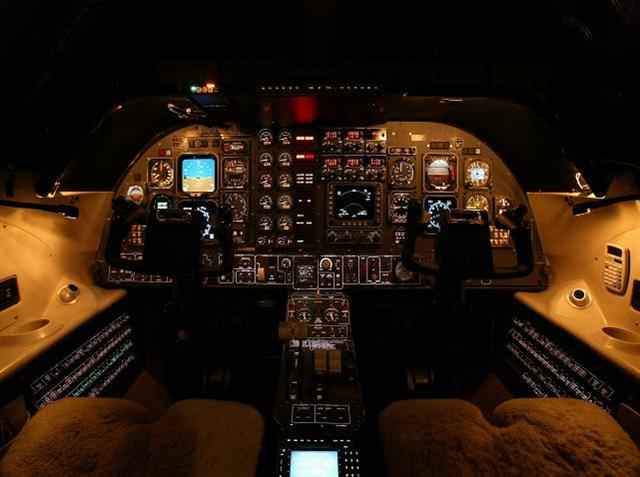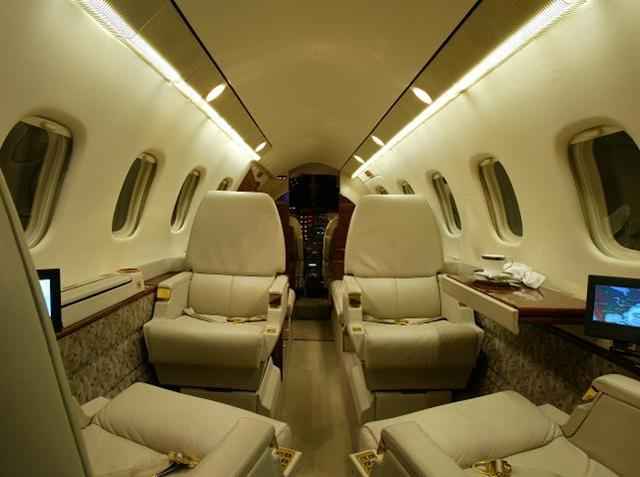


Aircraft Description
Background/History
Development of the Piaggio P180 Avanti dates back to program launch in 1981. Gates Learjet became involved in the project in 1983, but withdrew for economic reasons in 1986. Piaggio assumed total control of the program and all tooling was transferred to Italy. The first prototype flew in 1987 and the type was certified by Italian authorities in March 1990.The first production aircraft was rolled out in May 1990 and US FAA certification was granted in October 1990. First customer deliveries began in September 1991. The innovative Avanti, with its jet-like performance and turboprop-like operating costs, was unfortunately a slow seller in spite of its modern features and advanced design. Production was halted in the mid-90s but the aircraft was re-introduced to the marketplace in 2000 with deliveries beginning once again. A total of 104 aircraft were delivered through 2006.
Power
The Avanti P180 is powered by a pair of Pratt & Whitney of Canada PT6A-66 turboprop engines flat-rated at 850shp at ISA + 42 C. The engines drive five-blade, constant-speed Hartzell propellers and have an inspection interval of 3,000 hours.
Avionics
A three-screen Collins EFIS avionics suite is standard with a five-screen Collins EFIS system as an optional installation.
Design Features
The Avanti P180 is a twin-turboprop business aircraft constructed of aluminum and composite materials. Its unorthodox design is unique for a corporate type aircraft in that it features three flying surfaces-the canard foreplane, main wing and T-tail. This arrangement offers not only the benefits of the canard but also allows the wing to be positioned further aft on the fuselage so that it does not adversely affect cabin interior space. The canard also provides a positive lift component in addition to that produced by the main wing. This design allows the main wing to be reduced in size, resulting in less weight and drag. The pusher engine configuration was chosen to reduce cabin noise. The Avanti employs a retractable tricycle landing gear with a single wheel on the main gear mounts and a dual nose wheel mount.
Accomodations
The aircraft is certified for single-pilot operations so flight crew can be one or two. The typical cabin seating is for eight passengers with high-density arrangement for 10. Executive/VIP seating is five. The airstair is located on the port side, forward of the wing. Cabin dimensions are 14.1ft in length, 5.8ft. in height and 6.1ft. in width.
| General | Avanti P180 | |||
|---|---|---|---|---|
| Category | Multiengine Turboprop < 12,500 lbs. | |||
| Years Aircraft Manufactured | 1990 – 1995, 2000 – 2006 | |||
| Serial Number Range | 1001-1104 | |||
| Retail High Price | $3,195,000.00 / 2,507,116.50€ | |||
| Retail Low Price | $1,850,000.00 / 1,451,695.00€ | |||
| Characteristics | Avanti P180 | |||
| Seating | 1+7/9 | |||
| Wing Loading | 67.0 | |||
| Power Loading | 6.8 | |||
| Noise(EPNdB): Takeoff/Sideline/Approach | 76.0 | |||
| External Dimensions (ft) | Avanti P180 | |||
| External Length | 47.3 | |||
| External Height | 13.0 | |||
| External Span | 46.0 | |||
| Internal Dimensions (ft) | Avanti P180 | |||
| Internal Length (Overall/Net Height) | 14.1/14.1 | |||
| Internal Height | 5.8 | |||
| Internal Width (Max/Floor) | 6.1/4.3 | |||
| Baggage | Avanti P180 | |||
| External: Cu.Ft./Lb. | N/A | |||
| External: Cu.Ft./Lb. | N/A | |||
| Power | Avanti P180 | |||
| Engines | 2 P&WC PT6A-66 | |||
| Output (lbs ea.)/Flat Rating | 850shp/ISA+42 | |||
| Inspection Interval | 3,000t | |||
| Data based on latest manufactured year | ||||



